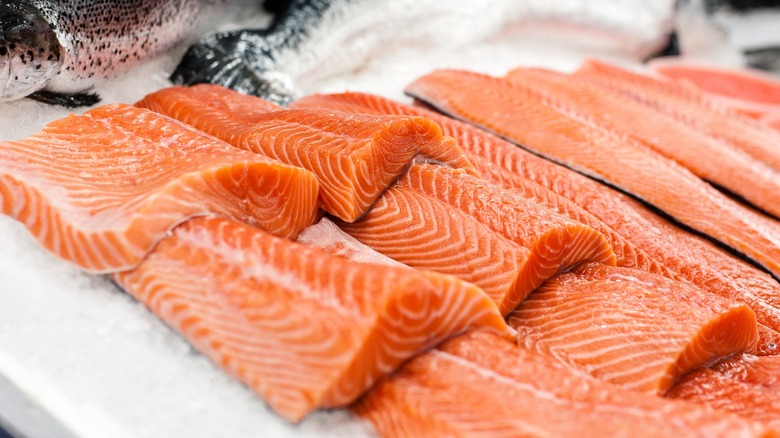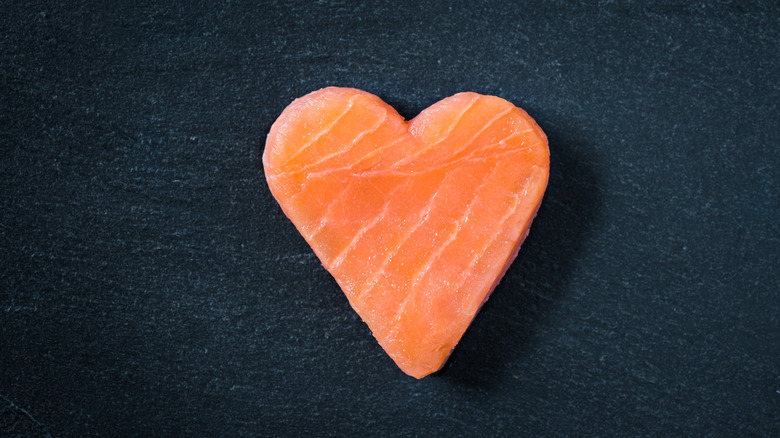How Adding Salmon To Your Diet Improves Your Heart Health
Sometimes keeping up with new food trends — what's healthy and what's not — can feel a lot like swimming upstream. But one food that has always had a place on the menu is salmon. Tasty, versatile, widely accessible, and nutritious, there seem to be a million reasons why salmon isn't just another fish in the sea.
A recent study published in JAMA Internal Medicine found that at least two servings of oily fish per week is associated with a lower risk of cardiovascular disease (CVD) in high-risk individuals with preexisting vascular disease. While people without vascular disease did not appear to procure any benefit from partaking in fish for this particular study, the American Heart Association reports that regularly eating fish that is rich in omega-3 fatty acids is consistently associated with a reduced risk of cardiovascular conditions, heart disease, and stroke across the board. Let's take a closer look at why it's so healthy.
Why is salmon healthy for the heart?
Beyond being an excellent source of lean protein, salmon is chock full of omega-3 fatty acids in the form of docosahexaenoic acid (DHA) and eicosapentaenoic acid (EPA); both of which may assist in the prevention of blood clots, boost blood pressure, and stabilize irregular heart rhythms, explains Harvard Health Publishing.
A 2021 study published in Nutrients suggests that the more you incorporate omega-3s in your diet, the less chance of there being a risk of a chronic disease characterized by inflammation, including cardiovascular disease. Therefore, by consuming salmon you're introducing more omega-3s into your system.
The benefit of choosing fish for dinner could be, in part, credited to the simple act of making healthier choices (per Harvard Health Publishing). When you're eating fish, it means you aren't consuming red or processed meat, some of which contain unhealthy fats and loads of salt. The Mediterranean diet, which has been shown to protect against heart disease, puts a lot of emphasis on fish, as well as olive oil, beans, and lots of fruits and vegetables.


